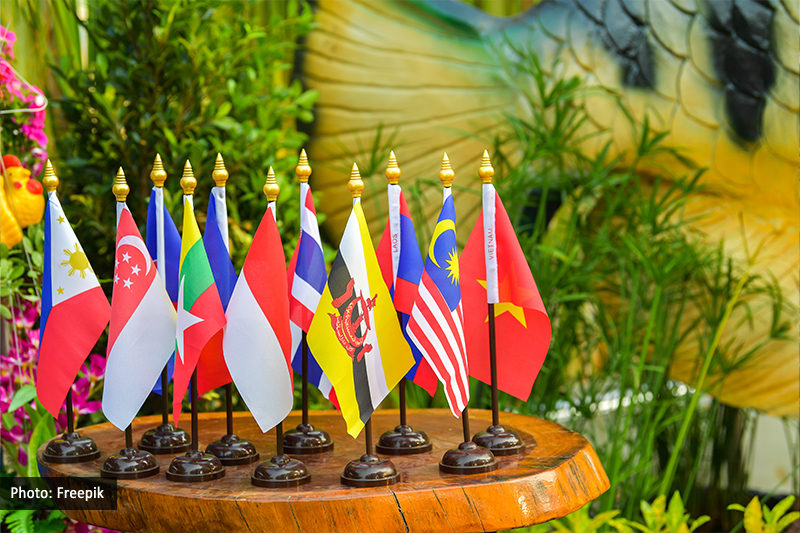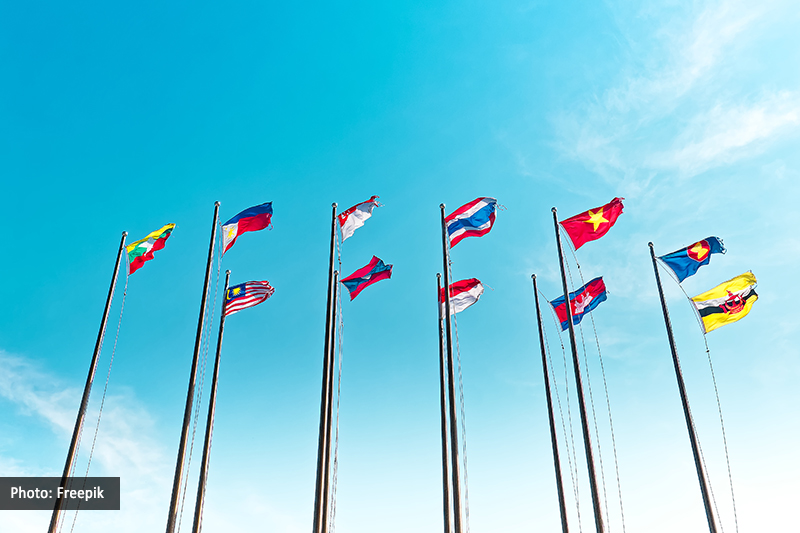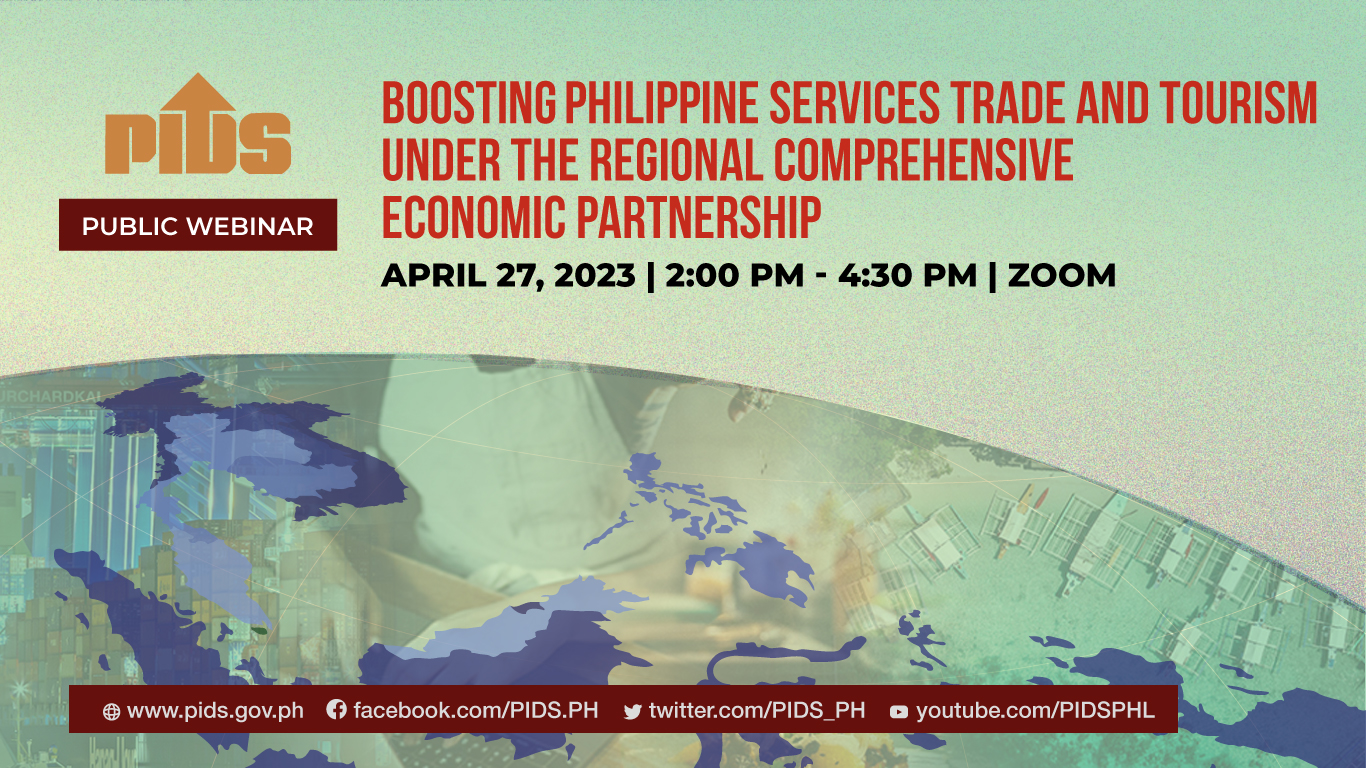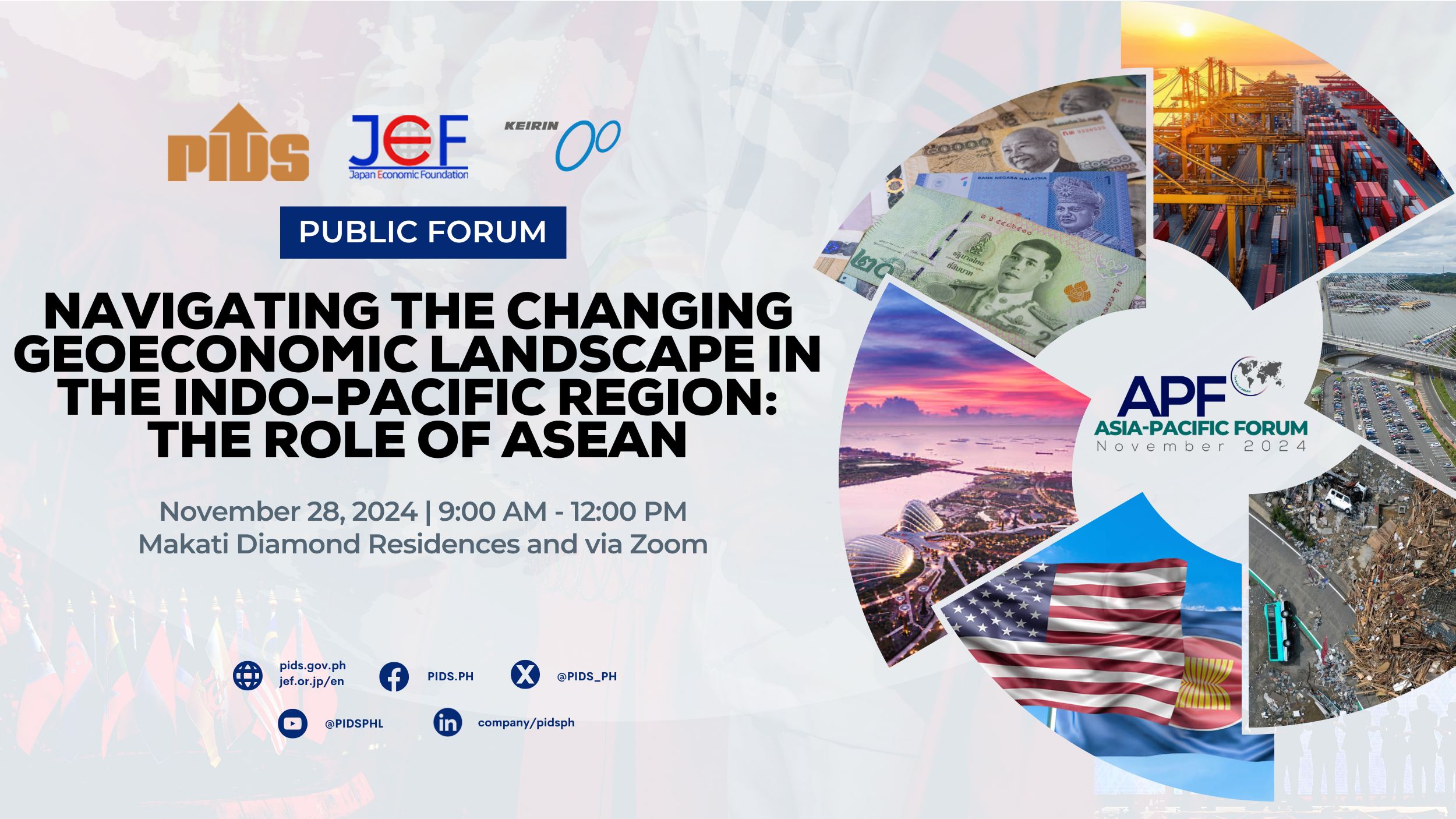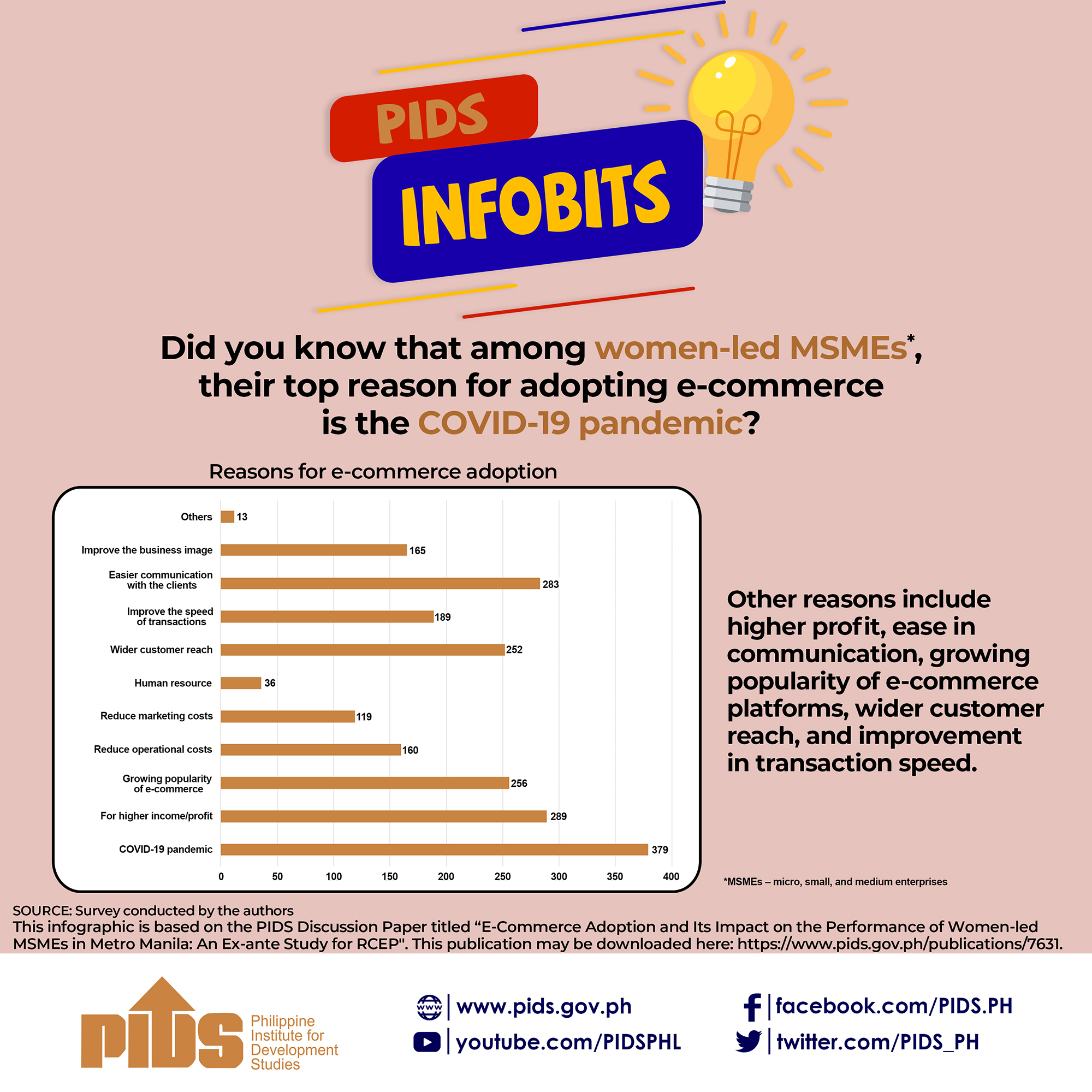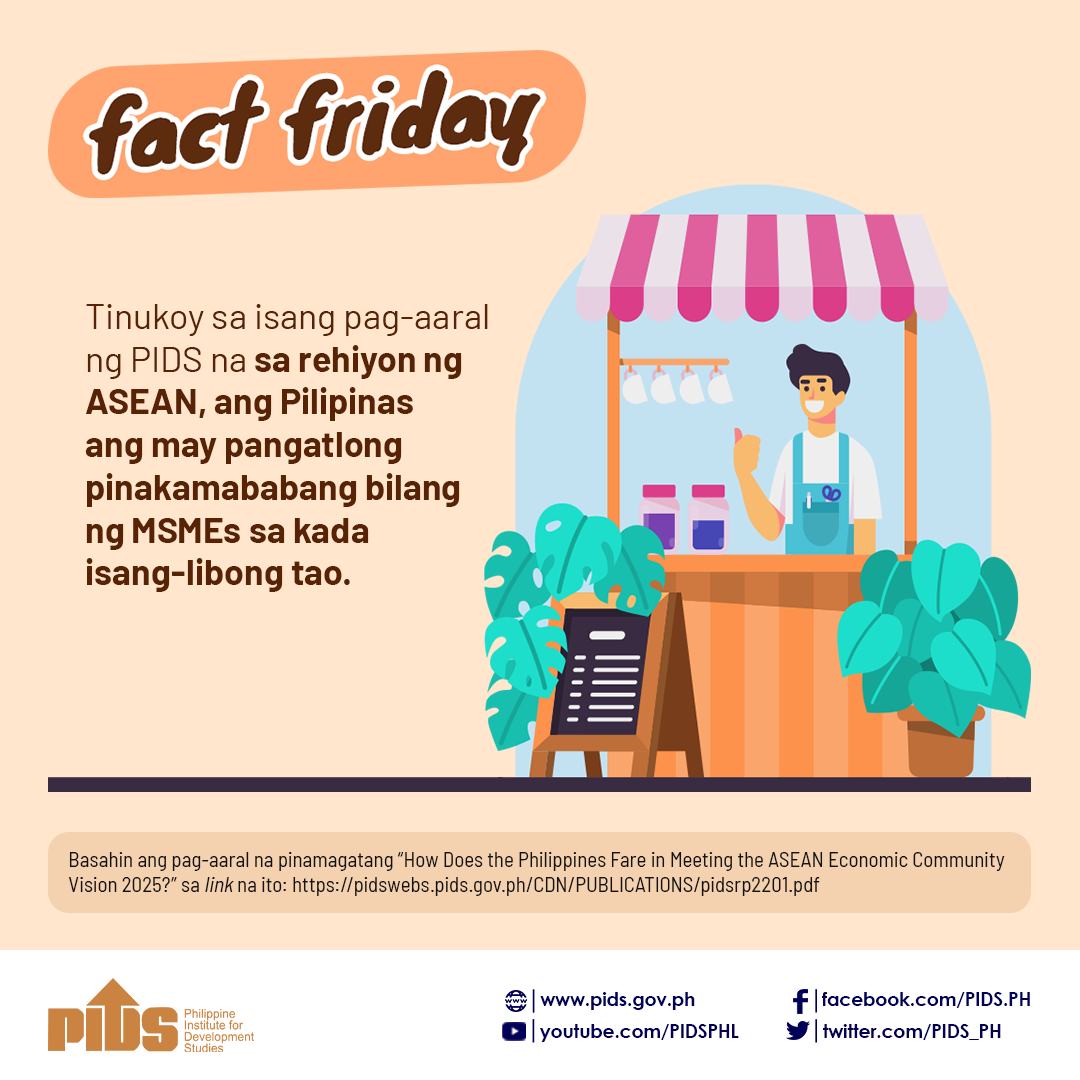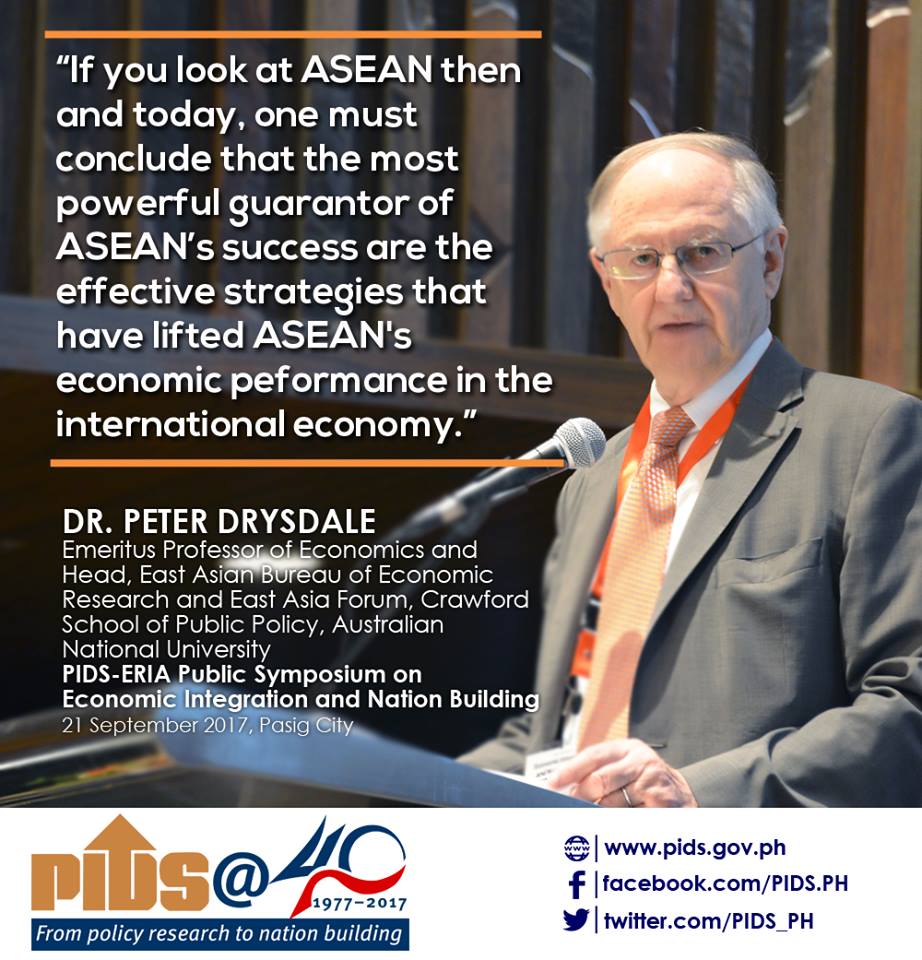
The Association of Southeast Asia Nations (ASEAN) should continue pushing for trade reforms and liberalization amid the rising protectionism across the globe.
Experts from the ASEAN and East Asia region made this call at a recent public symposium on ASEAN Economic Community and Nation Building organized by state think tank Philippine Institute for Development Studies and Jakarta-based Economic Research Institute for ASEAN and East Asia.
In his keynote message, Australian National University Emeritus Professor Peter Drysdale pointed out that ASEAN should continue its ‘open regionalism’ strategy in dealing with the protectionist stance adopted by the industrial world, particularly the US and Europe. According to Drysdale, this strategy has been the driver of growth and economic security in the region for the past 50 years. He likewise cautioned that retreating to protectionist measures would cost ASEAN its growth as well as the income and jobs for its peoples.
“The correct strategy for ASEAN is to hold firm and maintain course towards openness, reinforcing reforms and growth and economic security,” Drysdale emphasized.
The Regional Comprehensive Economic Partnership (RCEP), a proposed comprehensive regional economic integration agreement that would group China with the 10 ASEAN members plus Japan, South Korea, Australia, New Zealand, and India into a trading bloc, is the best platform, according to Drysdale, for countering this rising protectionism in the West. He added that “ASEAN desperately needs to conclude RCEP to avoid the British and the European disease.”
“ASEAN’s open regionalism can be given practical demonstrations through trade and economic policy actions in RCEP and can be reinforced through the Asia-Pacific Economic Cooperation, the ASEAN Economic Community, and other major economic partnerships,” Drysdale reiterated.
The RCEP, Drysdale said, is not just a free trade area but an economic cooperation arrangement that would extend further ASEAN’s influence in East Asia and potentially across the globe over time. In addition, he highlighted the role that RCEP could take in dealing with the political issues associated with cooperation in the region.
“ASEAN’s importance is of global stature. It sits at the fulcrum of a choice point in international economic policy. Going forward confidently in concluding the RCEP process will be ASEAN’s important contribution to managing the challenges and problems that we all face in the global economy today,” Drysdale concluded.
Meanwhile, PIDS President Gilberto Llanto said ASEAN, through the ASEAN Economic Community (AEC), has a great potential to be a major driver of global growth and development. Among its advantages, he said, are its big robust market of 600 million people, the availability of a young and talented labor force, and a healthy investment climate that is underpinned by the move toward competitive markets. However, these potentials must be reinforced with a strong commitment of the political leadership to a vibrant AEC.
The establishment of the AEC in 2015 is a major milestone in the regional economic integration agenda in ASEAN. Collectively, AEC represents the third largest economy in Asia and the seventh largest in the world.
Llanto also highlighted the opportunities in both domestic and foreign investments, particularly in the light of the fourth industrial revolution, that ASEAN will enjoy as an integrated market.
However, he also pointed out the need for ASEAN member-states to address constraints to freer trade and flow of skilled labor and capital, regulatory coherence, and people-to-people contact and interaction.
“The AEC has some notable achievements but there are still major challenges. For instance, there has been a major progress in the reduction of tariffs to near zero in ASEAN yet there is a rising trend in the use of nontariff measures,” Llanto quoted.
Llanto’s comment was based on the findings of a PIDS study showing that not all ASEAN member-states have clear and transparent rules on their nontariff measures, resulting in unclear regulations that increase the transaction cost of businesses.
In closing, Former Trade and Industry Secretary and ERIA Governor for the Philippines Gregory Domingo called on ASEAN to act together, particularly in capacitating its own entrepreneurs so that they can participate in the global trade. He noted that governments should find interventions to assist micro and small enterprises “en masse” and “as is”.
“By providing them access to e-commerce with the proper e-payment system, we can immediately and instantaneously provide them access to markets en masse,” he explained.
Lastly, Domingo urged ASEAN to take advantage of the opportunities brought by the growing digital economy. He noted that technological innovations such as e-commerce and sharing economy have been in the region for some time but so far their impact is still limited. He recommended that ASEAN as a whole should be coordinated in the way it deals with data security and data privacy, which are important components in promoting a vibrant digital economy. ###
Experts from the ASEAN and East Asia region made this call at a recent public symposium on ASEAN Economic Community and Nation Building organized by state think tank Philippine Institute for Development Studies and Jakarta-based Economic Research Institute for ASEAN and East Asia.
In his keynote message, Australian National University Emeritus Professor Peter Drysdale pointed out that ASEAN should continue its ‘open regionalism’ strategy in dealing with the protectionist stance adopted by the industrial world, particularly the US and Europe. According to Drysdale, this strategy has been the driver of growth and economic security in the region for the past 50 years. He likewise cautioned that retreating to protectionist measures would cost ASEAN its growth as well as the income and jobs for its peoples.
“The correct strategy for ASEAN is to hold firm and maintain course towards openness, reinforcing reforms and growth and economic security,” Drysdale emphasized.
The Regional Comprehensive Economic Partnership (RCEP), a proposed comprehensive regional economic integration agreement that would group China with the 10 ASEAN members plus Japan, South Korea, Australia, New Zealand, and India into a trading bloc, is the best platform, according to Drysdale, for countering this rising protectionism in the West. He added that “ASEAN desperately needs to conclude RCEP to avoid the British and the European disease.”
“ASEAN’s open regionalism can be given practical demonstrations through trade and economic policy actions in RCEP and can be reinforced through the Asia-Pacific Economic Cooperation, the ASEAN Economic Community, and other major economic partnerships,” Drysdale reiterated.
The RCEP, Drysdale said, is not just a free trade area but an economic cooperation arrangement that would extend further ASEAN’s influence in East Asia and potentially across the globe over time. In addition, he highlighted the role that RCEP could take in dealing with the political issues associated with cooperation in the region.
“ASEAN’s importance is of global stature. It sits at the fulcrum of a choice point in international economic policy. Going forward confidently in concluding the RCEP process will be ASEAN’s important contribution to managing the challenges and problems that we all face in the global economy today,” Drysdale concluded.
Meanwhile, PIDS President Gilberto Llanto said ASEAN, through the ASEAN Economic Community (AEC), has a great potential to be a major driver of global growth and development. Among its advantages, he said, are its big robust market of 600 million people, the availability of a young and talented labor force, and a healthy investment climate that is underpinned by the move toward competitive markets. However, these potentials must be reinforced with a strong commitment of the political leadership to a vibrant AEC.
The establishment of the AEC in 2015 is a major milestone in the regional economic integration agenda in ASEAN. Collectively, AEC represents the third largest economy in Asia and the seventh largest in the world.
Llanto also highlighted the opportunities in both domestic and foreign investments, particularly in the light of the fourth industrial revolution, that ASEAN will enjoy as an integrated market.
However, he also pointed out the need for ASEAN member-states to address constraints to freer trade and flow of skilled labor and capital, regulatory coherence, and people-to-people contact and interaction.
“The AEC has some notable achievements but there are still major challenges. For instance, there has been a major progress in the reduction of tariffs to near zero in ASEAN yet there is a rising trend in the use of nontariff measures,” Llanto quoted.
Llanto’s comment was based on the findings of a PIDS study showing that not all ASEAN member-states have clear and transparent rules on their nontariff measures, resulting in unclear regulations that increase the transaction cost of businesses.
In closing, Former Trade and Industry Secretary and ERIA Governor for the Philippines Gregory Domingo called on ASEAN to act together, particularly in capacitating its own entrepreneurs so that they can participate in the global trade. He noted that governments should find interventions to assist micro and small enterprises “en masse” and “as is”.
“By providing them access to e-commerce with the proper e-payment system, we can immediately and instantaneously provide them access to markets en masse,” he explained.
Lastly, Domingo urged ASEAN to take advantage of the opportunities brought by the growing digital economy. He noted that technological innovations such as e-commerce and sharing economy have been in the region for some time but so far their impact is still limited. He recommended that ASEAN as a whole should be coordinated in the way it deals with data security and data privacy, which are important components in promoting a vibrant digital economy. ###





